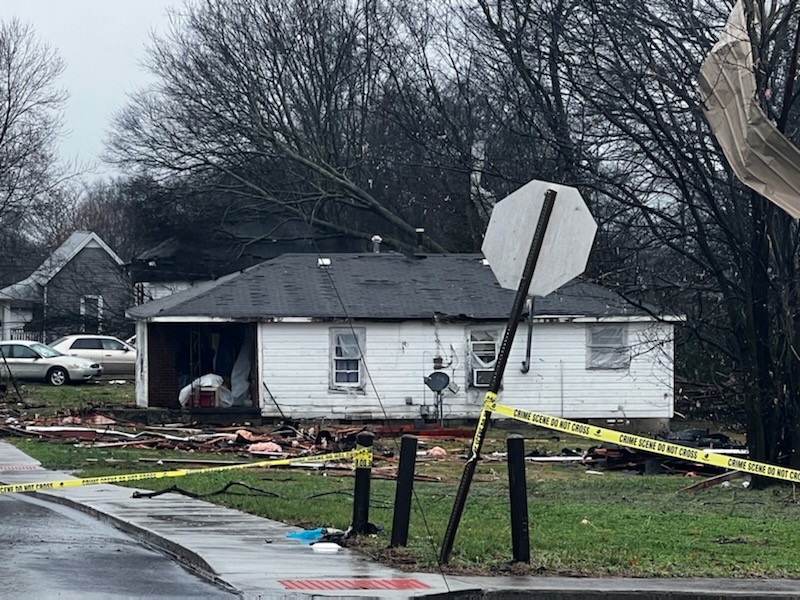Navigating A Suspected Adult ADHD Diagnosis

Table of Contents
Recognizing the Symptoms of Adult ADHD
Adult Attention-Deficit/Hyperactivity Disorder (ADHD) presents differently in adults than in children. While hyperactivity might be less pronounced, other symptoms can significantly impact daily life.
Common Adult ADHD Symptoms:
Adult ADHD symptoms often manifest as challenges with focus, organization, and emotional regulation. These can lead to significant difficulties in various aspects of life.
- Difficulty focusing: Struggling to maintain attention during tasks, conversations, or activities. This might involve frequent mind-wandering or difficulty filtering out distractions.
- Procrastination: Constantly delaying tasks, even important ones, despite knowing the consequences. This often stems from difficulty starting or maintaining focus.
- Forgetfulness: Frequently misplacing items, forgetting appointments, or failing to remember important information. This can impact work, relationships, and personal responsibilities.
- Disorganization: Struggling to maintain order in various areas of life, including workspaces, belongings, and schedules. This can lead to increased stress and inefficiency.
- Restlessness: Feeling an internal pressure to be constantly moving or doing something, often leading to fidgeting or pacing.
- Interrupting others: Frequently interrupting conversations or dominating discussions, often unintentionally.
- Emotional dysregulation: Experiencing intense emotional reactions that are disproportionate to the situation, leading to emotional outbursts or mood swings.
These symptoms significantly impact daily life, affecting work performance, relationships, finances, and overall well-being. For example, difficulty focusing at work can lead to missed deadlines and decreased productivity, while forgetfulness can strain relationships and lead to financial difficulties.
Differentiating ADHD from other conditions:
Many conditions share symptoms with Adult ADHD, making accurate diagnosis crucial. It's important to rule out other potential causes before concluding an Adult ADHD diagnosis.
- Anxiety symptoms: Restlessness, difficulty concentrating, and irritability are common in both anxiety and ADHD.
- Depressive symptoms: Low energy, difficulty concentrating, and feelings of hopelessness can overlap with ADHD symptoms.
- Other potential causes: Sleep disorders, thyroid problems, and certain medications can also mimic ADHD symptoms.
A comprehensive assessment by a qualified professional is vital for a proper differential diagnosis and to determine if the symptoms are indeed indicative of Adult ADHD.
Seeking Professional Help for an Adult ADHD Diagnosis
Getting a proper Adult ADHD diagnosis requires seeking help from a qualified healthcare professional.
Finding the Right Professional:
Several healthcare professionals can diagnose and treat ADHD. Choosing the right one depends on individual needs and preferences.
- Psychiatrists: Medical doctors specializing in mental health who can prescribe medication. They often play a key role in medication management for Adult ADHD.
- Psychologists: Mental health professionals who can provide therapy and conduct assessments to help diagnose ADHD and develop coping strategies.
- Neuropsychologists: Specialists who conduct comprehensive cognitive testing to assess cognitive function and identify potential areas of deficit.
It's essential to find a professional experienced in diagnosing and treating adults with ADHD. Look for someone who understands the complexities of the condition and its impact on adult life.
The Diagnostic Process:
The process of getting an Adult ADHD diagnosis typically involves several steps:
- Initial consultation: Discussing your symptoms, medical history, and concerns with the professional.
- Symptom assessment: Completing questionnaires and assessments to evaluate the presence and severity of ADHD symptoms. Common tools include the Adult ADHD Self-Report Scale (ASRS).
- Behavioral observation: The professional may observe your behavior during the assessment to further evaluate your symptoms.
- Psychological testing (if needed): This might include neuropsychological testing to assess cognitive function and rule out other conditions.
- Differential diagnosis: The professional will carefully consider other potential conditions that might explain your symptoms before reaching a diagnosis.
Accurate and honest self-reporting is crucial for a reliable diagnosis. Thorough documentation of your symptoms and their impact on your daily life will greatly aid the diagnostic process.
Understanding and Managing an Adult ADHD Diagnosis
Receiving an Adult ADHD diagnosis is a significant step, but it's also an opportunity to develop strategies for managing the condition and improving your quality of life.
Treatment Options for Adult ADHD:
Various treatment approaches are available for Adult ADHD, and a combination of approaches is often most effective.
- Medication: Stimulant and non-stimulant medications can help manage ADHD symptoms by improving focus, reducing impulsivity, and improving organization. However, it's crucial to discuss potential side effects with your doctor.
- Behavioral therapy: Cognitive Behavioral Therapy (CBT) and other therapeutic approaches can help develop coping mechanisms, improve self-management skills, and address underlying emotional challenges. Coaching can also provide valuable support and guidance.
- Lifestyle changes: Adopting healthy lifestyle habits, such as regular exercise, a balanced diet, and sufficient sleep, can significantly impact symptom management.
The most effective treatment plan will depend on individual needs and preferences. Working closely with your healthcare provider to develop a personalized treatment plan is essential.
Building a Support System:
Living with ADHD can be challenging, but having a strong support system can make a significant difference.
- Support groups: Connecting with others who understand the challenges of living with ADHD can provide valuable emotional support and practical advice.
- Therapy: Therapy can provide a safe space to process emotions, develop coping strategies, and build resilience.
- Family and friends: Educating loved ones about ADHD can help them understand your challenges and provide better support.
- Online communities: Numerous online forums and communities offer support, information, and a sense of belonging.
- Advocacy groups: Organizations dedicated to ADHD advocacy can provide valuable resources and support.
Building a strong support network is vital for navigating the challenges of living with ADHD and maintaining a high quality of life.
Conclusion:
Navigating a suspected Adult ADHD diagnosis can feel daunting, but understanding the process and seeking professional help is crucial. By recognizing the symptoms, finding the right healthcare provider, and exploring available treatment options, individuals can effectively manage their condition and improve their quality of life. Don't hesitate to take the first step toward a clearer understanding – seek a professional evaluation for your suspected Adult ADHD diagnosis today. Remember, seeking help is a sign of strength, not weakness. Learn more about Adult ADHD Diagnosis and available resources to begin your journey to improved well-being.

Featured Posts
-
 Actor Alan Cumming Recalls Favorite Childhood Activity In Scotland
Apr 29, 2025
Actor Alan Cumming Recalls Favorite Childhood Activity In Scotland
Apr 29, 2025 -
 Hengrui Pharma Secures China Approval For Hong Kong Ipo
Apr 29, 2025
Hengrui Pharma Secures China Approval For Hong Kong Ipo
Apr 29, 2025 -
 Alan Cummings Favorite Scottish Childhood Pastime Revealed
Apr 29, 2025
Alan Cummings Favorite Scottish Childhood Pastime Revealed
Apr 29, 2025 -
 Delays In Kentucky Storm Damage Assessments Understanding The Challenges
Apr 29, 2025
Delays In Kentucky Storm Damage Assessments Understanding The Challenges
Apr 29, 2025 -
 Willie Nelsons Health Concerns Rise Amidst Rigorous Touring Schedule
Apr 29, 2025
Willie Nelsons Health Concerns Rise Amidst Rigorous Touring Schedule
Apr 29, 2025
Latest Posts
-
 Papal Funeral Seating Protocol Protocol And More Protocol
Apr 30, 2025
Papal Funeral Seating Protocol Protocol And More Protocol
Apr 30, 2025 -
 The Intricacies Of Seating Arrangements At A Papal Funeral
Apr 30, 2025
The Intricacies Of Seating Arrangements At A Papal Funeral
Apr 30, 2025 -
 Planning The Seating For A Papal Funeral Logistical Challenges And Considerations
Apr 30, 2025
Planning The Seating For A Papal Funeral Logistical Challenges And Considerations
Apr 30, 2025 -
 Seating Plan For A Papal Funeral A Complex Undertaking
Apr 30, 2025
Seating Plan For A Papal Funeral A Complex Undertaking
Apr 30, 2025 -
 Analiz Vstrechi Rasstoyanie Mezhdu Trampom I Zelenskim I Ego Znachenie
Apr 30, 2025
Analiz Vstrechi Rasstoyanie Mezhdu Trampom I Zelenskim I Ego Znachenie
Apr 30, 2025
